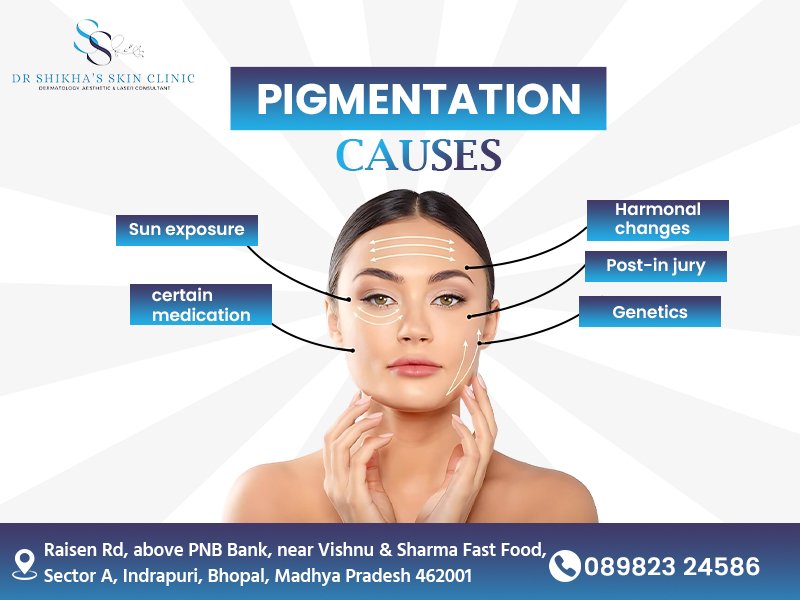Have you ever noticed freckles on your nose or darker patches after a breakout? These changes in skin tone are due to pigmentation! It is the natural process that decides your skin color and can create interesting patterns. But what happens when pigmentation isn’t balanced? Let’s explore different types and how dermatologists can help.
Understanding Melanin:
Melanin is essential and is made by skin cells called melanocytes. It acts like a natural sunscreen, protecting your skin from harmful UV rays. More melanin means darker skin, while less means lighter shades.
Types of Pigmentation:
There are two main types:
Hyperpigmentation: This occurs when melanin production increases, causing darker patches like age spots, sunspots, or melasma (common in pregnancy).
Hypopigmentation happens when melanin production decreases, resulting in lighter patches like those seen in vitiligo.
Causes of Pigmentation Issues:
Several factors can affect pigmentation:
Sun exposure: Too much sun can lead to dark spots forming on your skin.
Hormonal changes: Changes in hormones, such as during pregnancy or while using birth control, can trigger conditions like melasma.
Skin injuries: Injuries like acne or burns can sometimes leave dark marks on the skin as it heals.
Managing Pigmentation Concerns:
Although most issues are harmless, they can affect your skin’s appearance. Dermatologists can help with effective treatments:
Dermatologist’s Expertise: They diagnose and recommend treatments such as:
Sunscreen: Using SPF 30 or higher with sunscreen is essential to prevent further pigmentation.
Topical creams may include bleaching agents or retinoids to lighten dark spots.
Chemical peels: These treatments remove the top layers of skin, helping to even out skin tone.
Laser treatment: Laser therapies can target and reduce iteffectively.

